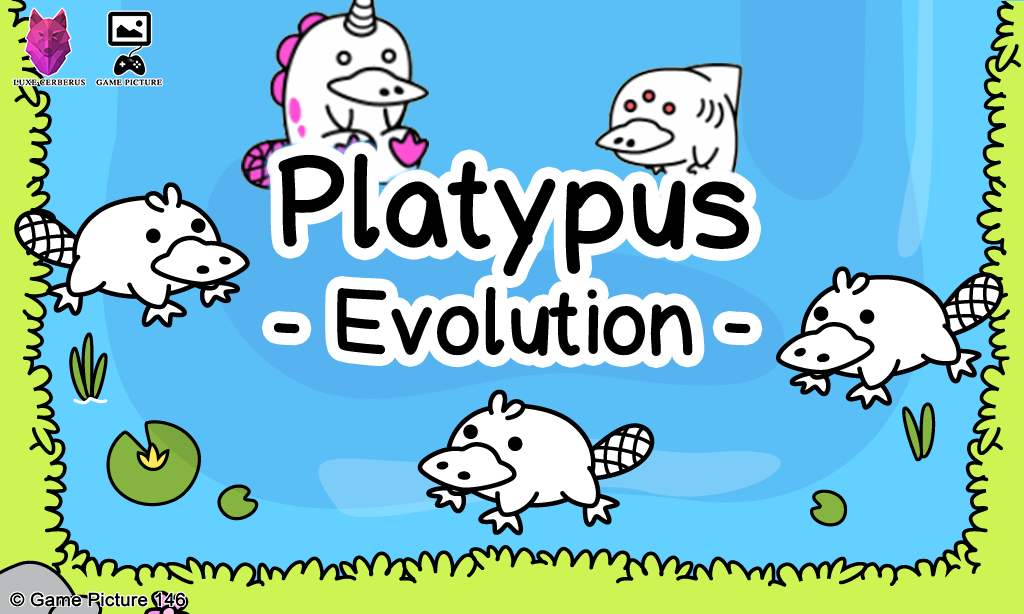

4 different stages and many platypus species to discover.Drag and drop similar platypus to create new mysterious creatures.Play God and turn already weird creatures into even weirder ones! Mix, match, combine and evolve regular platypus to God-knows-what new species of platypus and take over the world and BEYOND! What the heck would happen if some of them go through hardcore mutations? I mean, they’re just plain bizarre already. We can all agree that platypus are unique creatures. What would happen if mutations started happening to them? Find out in Platypus Evolution!įrom the minds that brought you Cow Evolution and forever changed the way you see bovines, comes a new game that somehow manages to be even crazier and more nonsensical. And venomous! Yes, platypus are already odd by nature. Jayisgames: “It's the perfect thing to sink your spare time into when you want something fun and casual” 4.5/5 See More See LessĮgg-laying, duck-billed, beaver-tailed, otter footed mammals. Dress your duck in crazy hats and give them awesome hairstyles! Grassland, Swamp, Mountains, Glacier, City, Volcano 6 different duck worlds featuring new shops and rivals. Race against other ducks for coins and tickets to the tournaments! The revamped app version features new and improved races, graphics, music and shop accessories. Ultimately, enter your duck in the final race against the champion duck, who is quite literally on fire, and be crowned with eternal glory. Watch proudly as it competes in tournaments against rival ducks, discovering exciting worlds and learning new skills. Train your duck in 15 mini-games featuring running, swimming, flying, climbing and jumping. Var widgets300GramsOrLess = Array.FindAll(widgets, Weighs300GramsOrLess) Īrray.Raise your duckling into a champion racer!Īre you ready to play the ultimate duck training game? The award-winning online sensation, racking up over 150 million plays internationally is finally in your hands!
#Platypus evolution pay to win code
This line of progression of code in particular is especially clever and helpful: I mean, honestly, this explanation is not useful:Įven better, here's a helpful post called "Learning C# lambda syntax from delegates", that, though the code is a little jammed together, steps you through the evolution from straight functions to anonymous functions/delegates to the specific anon funct of the lambda expression. This "do it because you gotta" directive seems to be a more productive approach than reading MSDN on lambdas. Public sealed class Expression : LambdaExpression

Represents a strongly typed lambda expression as a data structure in the Here's a snippet for Expression, which is in. Know that the way Fluent NHib is written, you're stuck. So forget, for the moment, how lambda's save space or provide some justifiable shortcut. As things are set up, there's simply no way around it. Why is that important? Well, the "Expression" parameter has to be a lambda expression. Public virtual IdentityPart Id(Expression > memberExpression) in your Fluent NHibernate mapping object is extending ClassMap and then calling its own function Id, as pictured below ( if Blogger would stop eating all my less than and greater than symbols): What's important to realize first is that Fluent NHibernate is calling functions that live in. If they're not, it could use a little more explanation. That's great if lambdas are second nature. Fluent NHibernate will see that your Id property has a type of int, and it'll automatically decide that it should be mapped as an auto-incrementing identity in the database - handy! The x in this example is an instance of Employee that Fluent NHibernate uses to retrieve the property details from, so all you're really doing here is telling it which property you want your Id to be. To start with we've mapped the Id column, and told Fluent NHibernate that it's actually an identifier. Getting started � jagregory/fluent-nhibernate Wiki � GitHub:


 0 kommentar(er)
0 kommentar(er)
